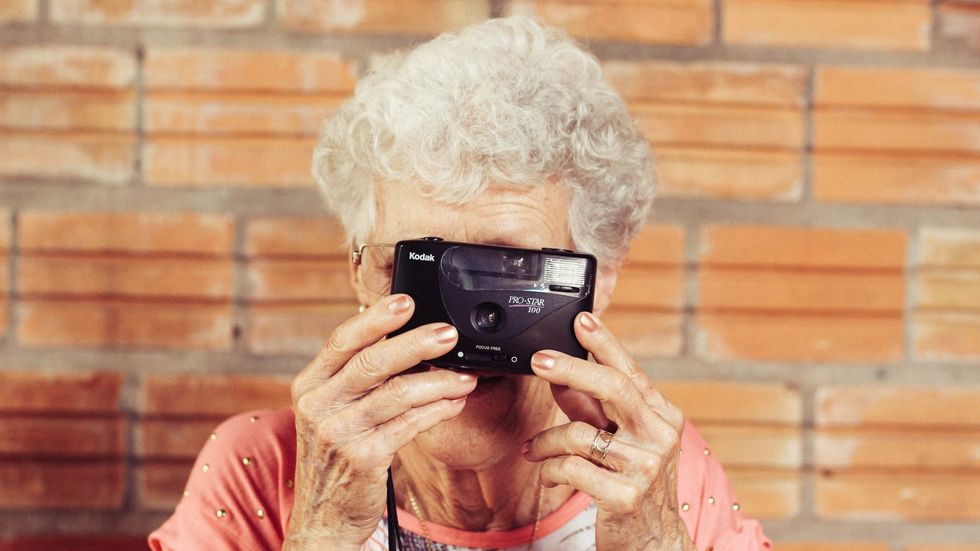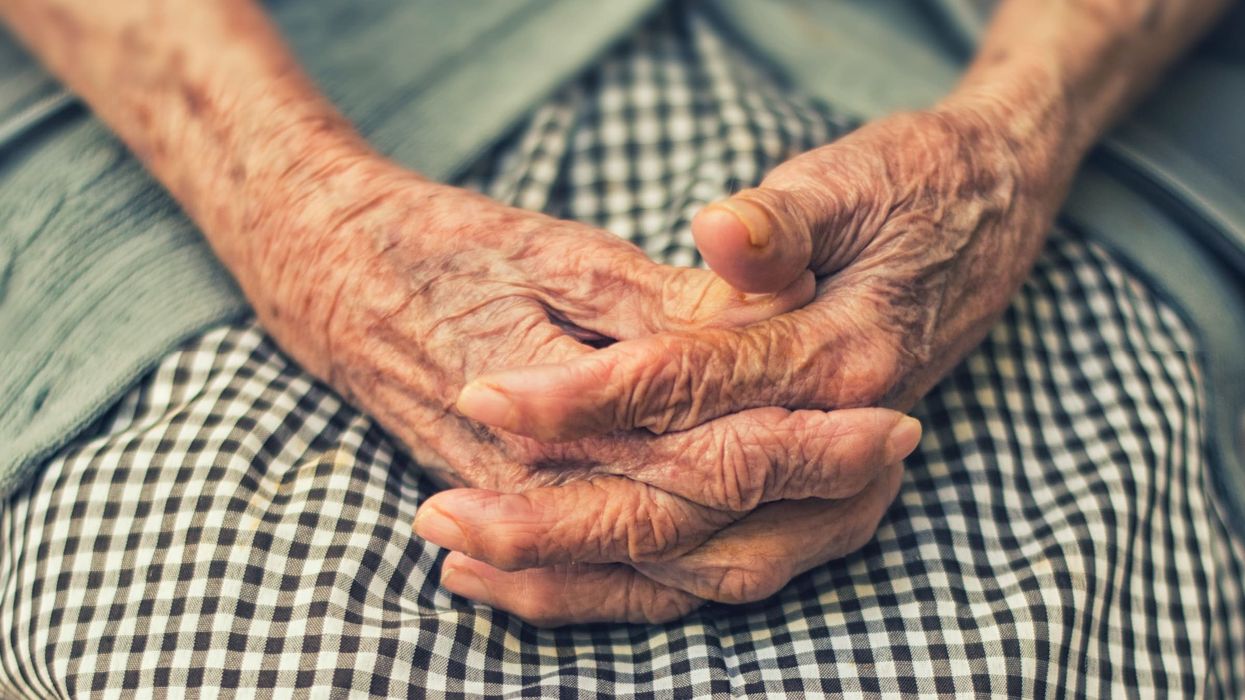Insomnia, pain, anxiety, depression – all common ailments for which people turn to cannabis as a potential remedy.
And the group that suffers from these ailments most? Seniors over the age of 60.
Yet how many cannabis brands do we see focused on the senior demographic – and the underlying concern of medical cannabis – in a meaningful way?
New Study Sheds Light on Senior Demographic

A recent study conducted by researchers at the University of California San Diego School of Medicine came up with relevant findings for cannabis brands that want to better serve the canna-curious.
Published in the Journal of the American Geriatrics Society, the study reported that out of 568 patients surveyed, approximately 15 percent had consumed cannabis within the past three years.
While 15 percent may seem like a low number – remember this demographic has been largely overlooked by U.S. cannabis efforts – half of that group revealed they use cannabis regularly and for medical purposes.
Christopher Kaufmann, PhD and co-first author of the study, noted in an Oct. 7, 2020, press release: “Pain, insomnia and anxiety were the most common reasons for cannabis use and, for the most part, patients reported that cannabis was helping to address these issues, especially with insomnia and pain.”
Kaufmann, who is an assistant professor in the Division of Geriatrics and Gerontology in the Department of Medicine at UC San Diego, also raised several important questions while expressing the need for more evidence-based research.
“We want to find out how cannabis compares to current medications available. Could cannabis be a safer alternative to treatments, such as opioids and benzodiazepines? Could cannabis help reduce the simultaneous use of multiple medications in older persons?” Kaufmann said.
“We want to find out which conditions cannabis is most effective in treating. Only then can we better counsel older adults on cannabis use.”
The Need for More Cannabis Research Doesn’t Have to Be a Showstopper

Indeed, as Kaufmann proposed, more cannabis research would be a great thing. In the U.S., however, research is still severely restricted while cannabis remains classified as a Schedule I controlled substance.
If U.S. physicians and practitioners want to better understand the clinical applications of cannabis it would behoove them to look toward Israel, which perhaps has the world’s greatest collection of clinical cannabis findings and research through their program Tikun Olam.
Another great resource for patients and practitioners alike would be the Association of Cannabis Specialists, which is based in the U.S.
Meanwhile, a lot of people in the U.S. – seniors included – have already seen enough value in cannabis as an alternative health and wellness product, either anecdotally or through their own experience, to move forward.
“Surprisingly, we found that nearly three-fifths of cannabis users reported using cannabis for the first time as older adults. These individuals were a unique group compared to those who used cannabis in the past,” said Kevin Yang, co-first author and third-year medical student at UC San Diego, who is also quoted in the press release.
“New users were more likely to use cannabis for medical reasons than for recreation. The route of cannabis use also differed with new users more likely to use it topically as a lotion rather than by smoking or ingesting as edibles. Also, they were more likely to inform their doctor about their cannabis use, which reflects that cannabis use is no longer as stigmatized as it was previously.”
The inclination for seniors in the study to stick with cannabis topicals and avoid other delivery formats is a prime example of how this group can benefit from credible guidance to help them better explore their options – and to design personalized cannabis regimens for maximum benefits and minimal side effects.
And while cannabis stigma is indeed starting to dissipate, it is still very much an issue almost everywhere, which is why the industry is tightly regulated. Even in California, 75 percent of cities and counties still have a ban on legal cannabis sales.
Bolstering Cannabis Knowledge at the Clinician Level

Alison Moore, MD, senior author on the study and chief of the Division of Geriatrics in the Department of Medicine at UC San Diego School of Medicine, also weighed in with her conclusions.
“The findings demonstrate the need for the clinical workforce to become aware of cannabis use by seniors and to gain awareness of both the benefits and risks of cannabis use in their patient population,” she said.
“Given the prevalence of use, it may be important to incorporate evidence-backed information about cannabis use into medical school and use screening questions about cannabis as a regular part of clinic visits.”
Moore’s points are a great start. For example, most medical schools still do not teach students about the endocannabinoid system (ECS), which was discovered in the early 1990s while scientists were studying how THC interacted with the body.
What they’ve since discovered about the ECS is mind-blowing. Found in humans and most animals, the ECS is essentially a molecular-level system responsible for maintaining balance in almost every metabolic process in the body: fertility, sensitivity to pain, emotional regulation, bone growth, eye pressure, immune response, sleep, and much more.
When something goes wrong with the ECS, any one of these processes is subject to malfunction leading to unwanted health issues and reduced quality of life.
Cannabis targets the ECS directly (along with nutrition and exercise), which is why the herb has so many potential applications for health and wellness and requires such a personalized approach.
Today, 30 years after its initial discovery, the ECS is not yet common knowledge among physicians and practitioners, which means we as an industry and a society still have a long way to go if we are to truly serve those who need cannabis the most.
The Industry is Hurting Itself by Overlooking Seniors
A lot of seniors have no hurdles with cannabis. Many of them have been happily consuming it for decades.
However, the vast majority have little to no experience with cannabis products. Cannabis brands would do well to realize that seniors are a big part of the untapped potential consumer base – part of the iceberg below the waterline.
Yet the current landscape doesn’t always make things easy. Many seniors who desire to move forward with cannabis – or at least give it a try – currently face a gauntlet of inferior CBD products, poor guidance, and too many budtenders directed to upsell them on potent products that they don’t need.
If the U.S. cannabis industry cannot facilitate programs, laws, and guidance to better support seniors and anybody else who needs medical cannabis – if we can’t keep our eye on the ball here – what are we doing exactly?
The Bluntness is gearing up for big things. Don't miss out! Sign Up for our newsletter to stay in the loop.














 Apple Fritter Strain - The Bluntness
Apple Fritter Strain - The Bluntness Apple Fritter Strain Review
null
Apple Fritter Strain Review
null

 The Truth About THC Candle: Cannabis Candles & How to Make Your Own - The Bluntness
Photo by
The Truth About THC Candle: Cannabis Candles & How to Make Your Own - The Bluntness
Photo by 
 How to Make a Cannagar Without a Mold: A Comprehensive Guide - The Bluntness
Photo by
How to Make a Cannagar Without a Mold: A Comprehensive Guide - The Bluntness
Photo by 